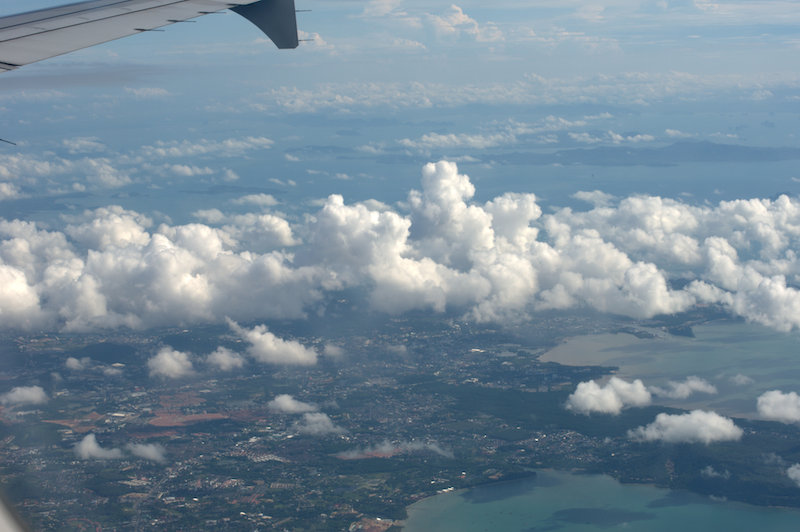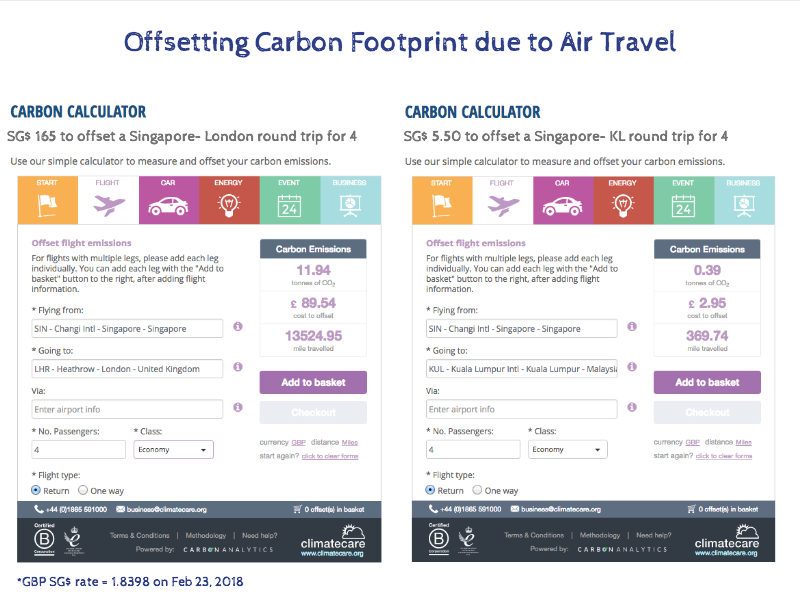Published 25 February 2018 ● Last Updated on 29 July 2020

Is CORSIA enough to contain the alarming Carbon emission threat?
No, it is not. In addition to CORSIA, the aviation industry will need to 1. Continue to find ways to use sustainable alternative fuels (Singapore Airlines has a fleet of 12 Airbus A350-900 using biofuels, KLM and United Airlines have a few energy efficient aircraft in their fleet too) 2. Focus on continued improvements in technology(hybrid aircraft, more fuel-efficient aircraft) 3. Aim for increased efficiency in operations [Retrofitting existing aircraft with aerodynamic winglets and lighter interiors] 4. Invest in better infrastructure(LED lights). While there are ongoing research projects and lots of encouraging results, many airlines are yet to adopt these- commercial viability, cost of refitting/ replacing existing fleet are some of the reasons for this.
Here is where we step in by making our air travel eco-friendly
In addition to global regulations and industry action, few small changes that we as individuals who want to lead a more eco-friendly lifestyle can make when we take our future travel decisions are
1. Fly less, fly efficient: Remember Skype and Video Conferencing? Both work really well now, gone are the days of glitches and lagging message. Granted, this may not always be effective and air travel is inevitable given we live in Singapore, but surely we can plan efficiently- direct flights, light packing and combining trips can be a few easy-to-execute personal goals.
2. Fly coach: First class seats, which take up more space and therefore increase the amount of fuel used per passenger, leave an even bigger carbon footprint—up to nine times larger than their economy counterparts, according to a 2009 World Bank study. So while the overall environmental impact of aviation might seem relatively negligible (the aviation industry is responsible for 2 percent of global emissions), for frequent-flyers, air travel is a significant slice of their individual contribution to climate change.
3. If you fly, Carbon offsets buy!
3a. In-house: Today, a lot of airlines are offering carbon offset programs to their clients while booking tickets- In Asia: JAL, Cathay, Qantas, Jetstar, Singapore Airlines, Air Asia are few of the key airlines offering it. In the Far West- Delta and United are 2 of the early adopters. In Europe- Austrian, Lufthansa, Scandinavian. What do they do with the collections? They support designated projects that help fight climate change- ranging from energy projects to forest conservation to mangrove forest restoration on the coastline. Read here to know more.
3b. On your own: Where you can’t offset at the time of booking, use the carbon calculator by climatecare.org to determine the CO2 emissions contributed by your air travel. The climatecare.org platform enables users to donate money to offset the emissions to a myriad of projects globally. Few of the projects they support are listed here. In fact you can use the calculator to find out your carbon footprint for you car, energy usage, events and business. Definitely a better alternative to ‘doing nothing’!

To conclude: What is the future? Solar air travel maybe one day! God Bless Bertrand Piccard and Andre Borschberg and give them power to continue dreaming. Dreaming big! Until then, why don’t we all just slow down, a tad bit and attend that next meeting over a video call.
-Lara



0 Comments